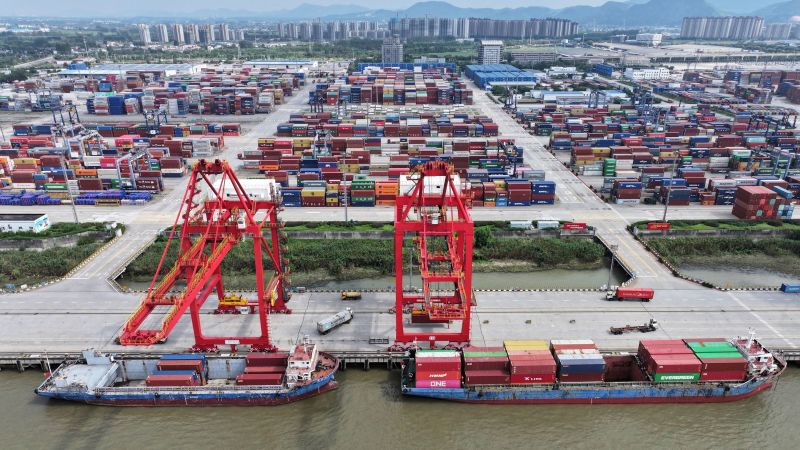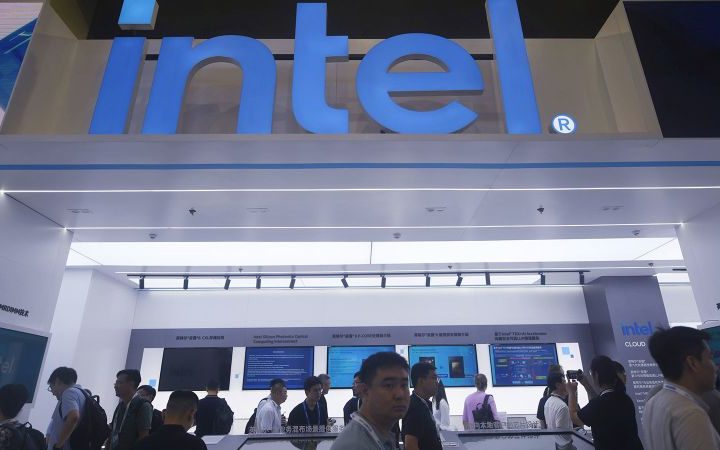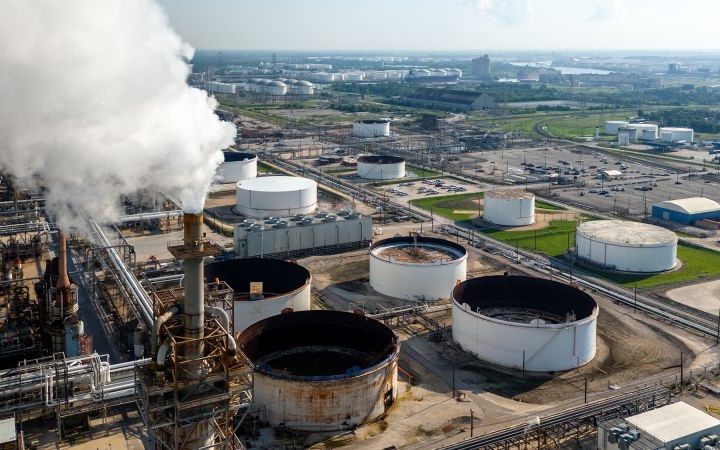China’s exports and imports shrank at a slower pace for a second month in September, customs data showed on Friday, adding to the recent signs of a gradual stabilization in the world’s second-biggest economy thanks to a raft of policy support measures.
The trade report should provide some encouragement to authorities, although stiff challenges remain in an economy facing persistent deflationary pressure, a long-running property crisis, a slowdown in global growth and geopolitical tensions.
Outbound shipments in September declined 6.2% from a year ago, following a drop of 8.8% in August, and beating economists’ forecast for a 7.6% fall in a Reuters poll.
The figures were backed up by new export orders in an official factory survey two weeks ago which showed improvement last month, partly because of a peak export shipping season for Christmas products and favorable base effects.
“There’s increasing evidence that the cyclical upturn in the global electronics sector is driving a bottoming-out of global trade and China’s trade data is the latest sign,” said Xu Tianchen, senior economist at the Economist Intelligence Unit.
“This gives reason for optimism about a rosier trade picture in 2024,” he said.
South Korean exports to China, a leading indicator of China’s imports, fell at their slowest pace in 11 months in September. Semiconductors make up the bulk of their trade, signaling improving appetite among Chinese manufacturers for components to re-export in finished goods.
Global trade activities, represented by the Baltic Dry Index, also reported notable growth in September.
However, Lv Daliang, spokesperson of the General Administration of Customs, said at a press conference earlier on Friday that China’s trade still faces a complex and severe external environment.
Thanks to gradual recovery in domestic demand, imports also fell at a slower pace, down 6.2%. They missed the 6.0% decline forecast in the poll, but came in better than a 7.3% contraction in August.
That resulted in a broader trade surplus of $77.71 billion in September, compared with a $70 billion surplus expected in the poll and $68.36 billion in August.
Overall, economists say it’s too early to make a call on how domestic demand will pan out in coming months as the crisis-hit property sector, uncertainties in employment and household income growth, as well as weak confidence among some private firms, pose risks to a durable economic rebound.
The $18 trillion economy started losing steam from the second quarter after a brief post-Covid bounce, prompting policymakers to roll out several measures to shore up the recovery in the face of a sluggish housing market, high youth unemployment and mounting local debt repayment pressure.
China’s consumer prices faltered and factory-gate prices shrunk slightly faster than expected last month compared with a year earlier, inflation data released earlier on Friday showed, indicating that deflationary pressures persist in the economy.
Yet, authorities can take some comfort from recent data including upbeat factory activity and retail sales while the past Golden Week holiday travel edged up 4.1% from pre-pandemic 2019 levels.
In order to help the economy meet the government’s annual growth target of around 5%, China is considering issuing at least 1 trillion yuan ($137.00 billion) of additional sovereign debt to fund infrastructure projects, as Beijing prepares to bring a new round of stimulus, Bloomberg News reported on Tuesday, citing people familiar with the matter.
Most analysts have been reiterating in recent months that policymakers will need to go further than introducing piecemeal measures in order to bolster the economic recovery.
“Whatever does emerge from Beijing over the coming months, it likely won’t be quick enough to make any meaningful difference to 2023,” said Robert Carnell, regional head of research Asia-Pacific at ING in a note.
“At best, it should be viewed as a pain management tool for the transition to a less leveraged economy.”
Read the full article here







